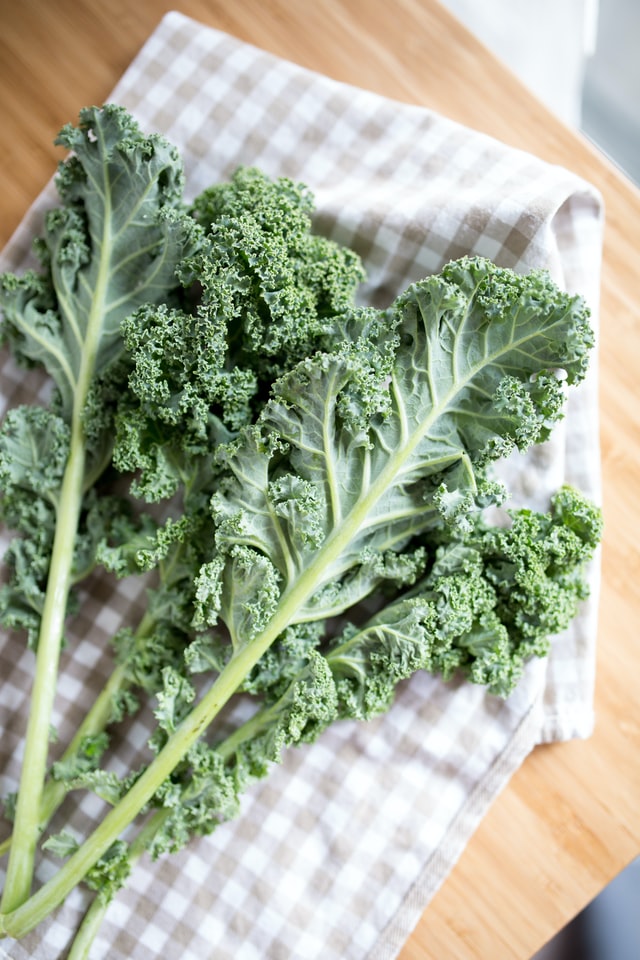Many prepare for winter by stocking up on scented candles and busting out flannel pjs, but it’s also time to work winter superfoods into your favorite cold-weather recipes and soups in order to stay healthy.
We can kiss fresh blueberries and tomatoes goodbye until next summer, but the good news is, the cold season is full of superfoods, too.
What is a Superfood, Anyway?
Let’s start with what qualifies as a superfood first because let’s be real, no single food can do it all. So, what makes a superfood so super? Simply put, the title is reserved for natural foods that are especially nutrient dense and low in calories. A superfood boosts immunity, promotes heart health, helps prevent cancer, reduces inflammation, and lowers cholesterol. Basically, they’re super healthy.
Yes, there are some foods mistakenly labeled as a superfood solely for the sake of marketing. However, the following ten foods are worthy of the honorable title for their own reasons.
1. Honey

If honey was a superhero, it wouldn’t be limited to just one super power. Perhaps one of the best perks of honey is how it acts like an energizer to keep you going during the winter months.
Nature’s sweet superfood has antibacterial and antiviral properties that boosts immunity and helps you fight sickness. Raw honey can treat sore throat, dry skin, and chapped lips.
2. Sweet Potatoes
Did you know that more than 6,000 varieties of sweet potatoes exist worldwide? They come in various colors ranging from orange to red, and white to purple.
This orange fleshed veggie is an excellent source of vitamins A and B6, potassium and fiber. The healthy dose of vitamin A and B6 gives our immune system a nice boost especially as flu season comes upon us. If winter’s taking a toll on your arthritis, treat yourself to some sweet potatoes because the vitamin C will play a huge role in aiding your inflammation.
3. Squash
Squash is easily one of the most underrated superfoods that deserves more attention. It’s affordable, widely available, and more importantly, packed with nutrition. This veggie has considerable amounts of manganese, copper, and magnesium, all of which support bone health. The high potassium level also helps regulate blood pressure.
If you’re looking for ways to incorporate squash into your meals, start with this easy 5-star recipe for roasted butternut squash. One bite will have you hooked on this humble gourd.
4. Cruciferous Vegetables
In the winter, the spotlight shines brightly on brussel sprouts, broccoli, cauliflower, and cabbage. This diverse group provide 25-30 percent of the fiber in your diet.
Each of these veggies are special in their own way from containing iron and calcium to protecting against certain types of cancers and aiding blood sugar control. All around, cruciferous veggies support health and good digestion.
If you’re craving some of these leafy greens to combat the winter blues, start roasting a batch or try your hand at a fancy, garlicky cruciferous pasta.
5. Root Vegetables

Some common root vegetables include beets, carrots, yams, turnips, and parsnips. Sweet potatoes are also a root veggie, but they’re so super, they deserved their own category. These superior veggies grow underground and absorb nutrients from the soil.
When cold salads are less than appealing in the winter, stock up on root vegetables to create the ultimate comfort-food meal complete with caramelized veggies. This meal will help you get an easy jump start on your daily veggie quota.
6. Avocados
Many associate avocados with summertime guac and margaritas, but avocados are the ripest between August and December. Not only are they delicious, but they are one of the most nutrient-rich food around that recently boomed in popularity. The most well known variety is Hass contains a wealth of vitamins.
High in monounsaturated fats, this superfood helps lower bad cholesterol and raise good cholesterol. The higher your “good” cholesterol, the less likely you’ll experience heart disease.
7. Garlic
With colds and flu running rampant, now’s the time to increase your garlic intake. Buck up and crush garlic to eat it raw for a great source of selenium, germanium, and a form of sulfur that assists in proper immune function. In short, germanium and selenium help prevent or reduce risks of a variety of medical conditions like thyroid health, heart disease, and cancer.
This everyday powerful food is associated with improving blood circulation, healthier cholesterol levels, and lowering blood pressure.
8. Ginger
Ginger is abundant in the winter, just at the perfect time. Packed with exceptional flavor, ginger is popularly added to a wide range of drinks and food recipes – particularly holiday cookies. What you likely don’t know is that ginger can be effective in normalizing blood sugar levels and combating heartburn and acid reflux.
Of course, it plays an important role in avoiding a troublesome cold by helping your immune system build up its defences. It’s a go-to natural remedy for calming the stomach and nausea.
9. Kale
Belonging to the cruciferous family, Kale is king among most and deserves some applause. Kale is extremely healthy because it’s a great source of vitamins, calcium, folate, iron, and several other nutrients. Overall, it contains minerals that most people don’t get enough of to begin with.
Kale is one of the easiest and plentiful leaf veggies to grow and transform into something delicious with many versatile options. From healthy salads and smoothies to crunchy chips, this veggie has never tasted better. Whatever you do, don’t sleep on kale this winter.
10. Leeks

Leeks are thought of as a summertime food but they’re incredibly resilient and can grow even in sub-20 degree weather. The range of health benefits include reducing inflammation, promote heart health, aid weight loss, and elevate brain function.
Appearing like a giant green onion, leeks have a milder, somewhat sweet flavor when cooked. Leeks can be made with pretty much anything you want but here are an assortment of recipes to get you started.
There are plenty of in-season fruits that qualify as superfoods you need to check out this winter.





